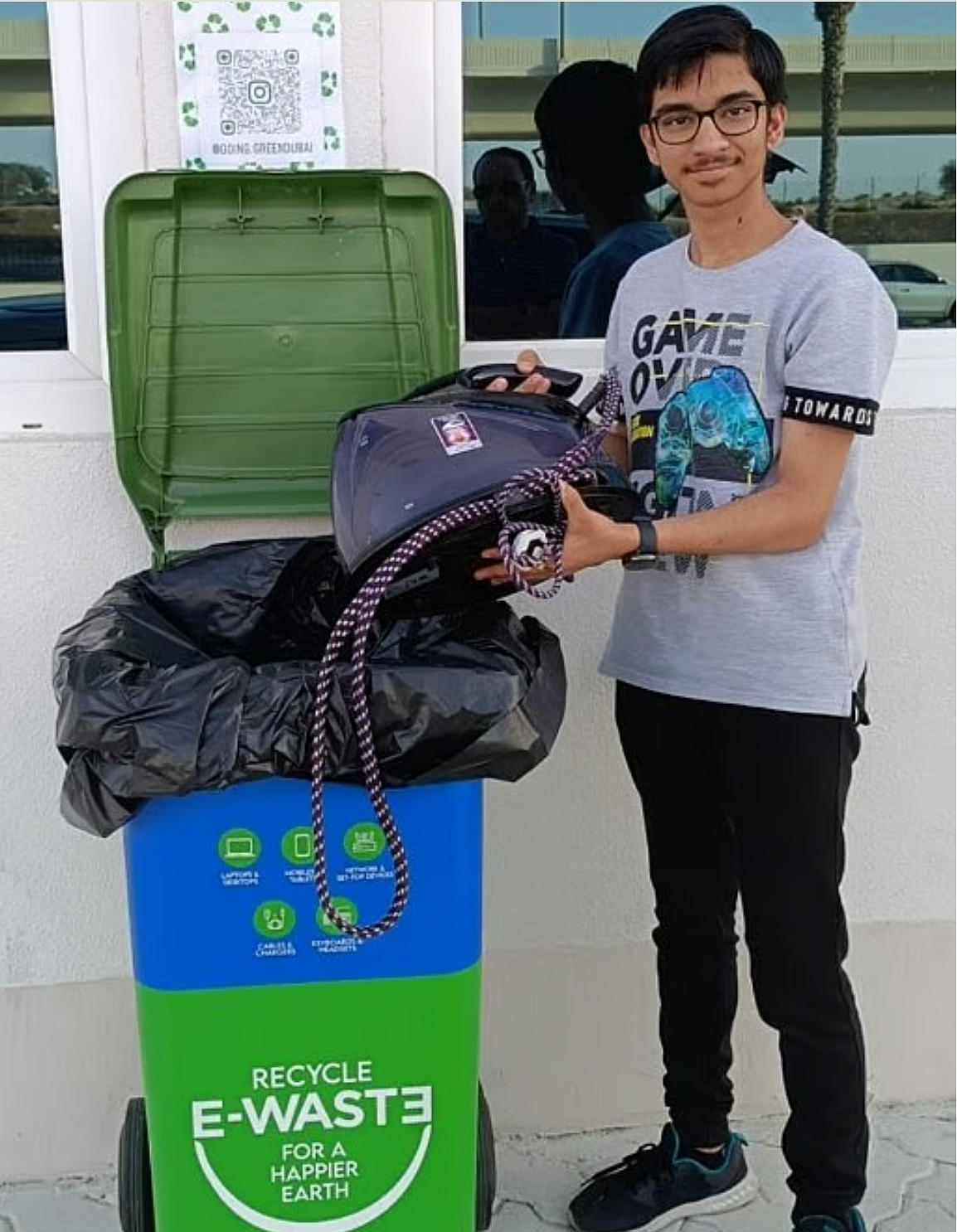
Meet 17-Year-Old KT+150 Changemaker Redefining How We Recycle Electronic Waste
At just 13 years old, Rishabh Mittal already began thinking about his environmental footprint and making small but conscious choices toward a sustainable lifestyle.
The 'Recycling Hero' started small. What started as collecting plastic bottles has now evolved into something more impactful - collecting one of the least biodegradable and most harmful wastes in our ecosystem: electronics.
Recommended For YouRishabh is the founder of Going Green Dubai, a youth-led initiative that inspires community members to recycle and reduce their environmental impact, in support of a greener future. His main focus is to properly recycle electronic waste - discarded electronic devices that, according to the World Health Organisation, is one of the fastest-growing solid waste streams in the world.
Stay up to date with the latest news. Follow KT on WhatsApp Channels.
He started the initiative four years ago, when he was still in middle school. Now at 17, the high school student's commitment has earned him recognition. Rishabh was honoured as a KT+150 achiever in October - an over-expanding list of 150 young, bright changemakers who are making an impact in one of 15 different industries. He was listed in the Social Impact category.
From plastic bottles to e-wasteInitially, the high school student started thinking about this initiative when he was working on a school project on recycling. It was then that he decided to do something impactful for both the community and the environment.
He started by collecting plastic bottles in his residential building weekly, ensuring they reached proper recycling bins. But soon, his passion for technology steered him toward a greater challenge - electronic waste.
“We use electronics on daily basis, old laptops, mobile phones. What happens to them after we no longer need them?” he said.
“(E-waste) typically ends up in landfill and they don't turn into organic matter. In fact, they're more harmful than your regular plastics and papers because they have chemicals,” he added.
E-waste, described as discarded electronics, usually take an astonishing millions of years to decompose, and usually release harmful toxins in the environment.. One study estimated that undocumented e-waste contains around 50 tonnes of mercury, posing a serious threat to both ecosystems and human health.
Turning awareness into actionTo take his initiative to higher heights, Rishabh partnered with EnviroServe, the region's largest e-waste processing facility. Together, they organised school campaigns and set up EnviroServe's e-waste bins for students and community members to safely dispose of their unused electronics.
He explained that the facility can recycle everything from mobile phones and laptops to large electronics like refrigerators and washing machines.
“They recycle it by turning them into raw metals, since all devices have some sort of metal, aluminium, copper, or steel,” he said.“They break it down and then it turns into the copper strands, chunks of plastic as well, chunks of metal, aluminium, a lot of things.”
At the start of the campaign, Rishabh said around 1,000 to 2,000kgs of e-waste was collected within one month. According to the Going Green Dubai website, it has collected 19,960 bottles, recycled and collected 7,109kg of e-waste, and reduced carbon dioxide emissions by 8,951kg.

Legal Disclaimer:
MENAFN provides the
information “as is” without warranty of any kind. We do not accept
any responsibility or liability for the accuracy, content, images,
videos, licenses, completeness, legality, or reliability of the information
contained in this article. If you have any complaints or copyright
issues related to this article, kindly contact the provider above.


















Comments
No comment